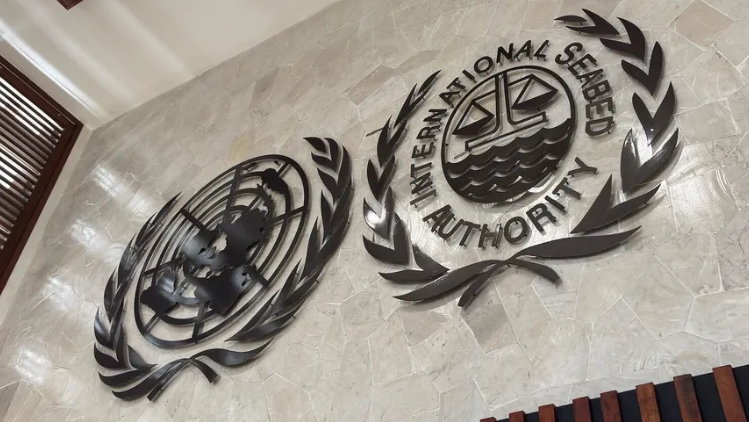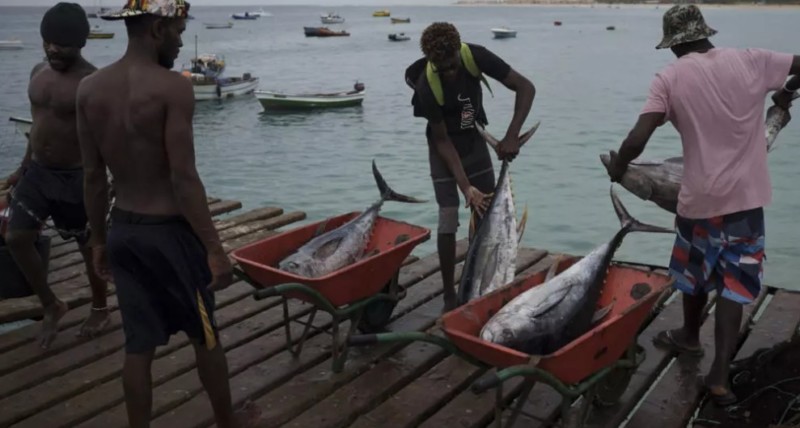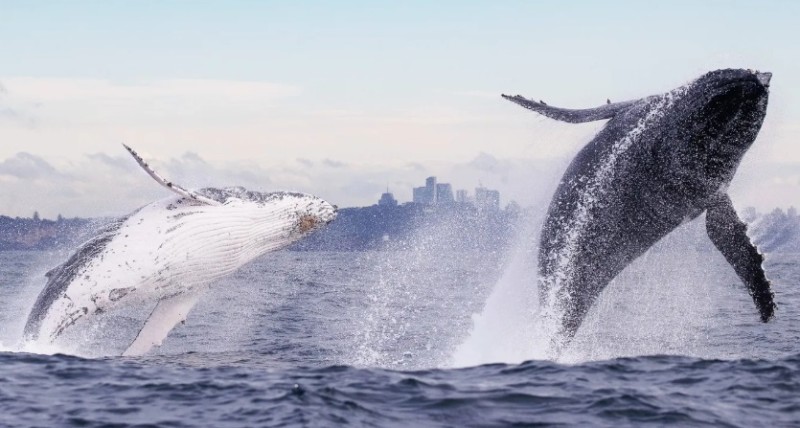KINGSTON, Jamaica — The Trump administration is on a rogue quest to mine critical minerals from the ocean floor — and recent global negotiations over the fate of deep-sea mining reveal just how alone the U.S. is on the issue.
The deep-sea treasure that the administration seeks are lumpy, potato-sized rocks known as polymetallic nodules. They litter the mucky bottom of deep ocean areas across the planet. But in the 1970s, companies discovered that nodules in remote stretches of the Pacific Ocean contain high concentrations of several critical minerals, including many used today to make the lithium-ion batteries in electric vehicles.
Most of the world’s high-value nodules are found in international waters located between Hawaii and Mexico. Since 1994, when the United Nations Law of the Sea treaty went into effect, diplomats from most of the world’s countries have met annually to negotiate if and how to allow companies to extract those nodules for profit. No large-scale mining has yet taken place.
Last month, delegates from France, Russia, China, and most of the world’s other major economies gathered to continue those negotiations in a conference center in Kingston, Jamaica, overlooking the city’s turquoise coastal waters. The U.S., which is the only major country that hasn’t ratified the 1994 treaty, participated as an “observer.”
During the negotiations, run by the United Nations affiliate known as the International Seabed Authority, little progress was made on the specific task at hand: finalizing a code that would permit commercial mining on the high seas under the Law of the Sea.
Instead, during the two final days, the high-stakes deep-sea mining talks devolved into a public airing of grievances against the United States — including by several of the country’s allies, who, in an unusual move, have started to align more with China over the U.S. in the increasingly contentious fight.
That’s because President Donald Trump has been pushing the U.S. to barrel ahead on deep-sea mining. The country plans to permit mining in international waters under an obscure U.S. law from 1980 called the Deep Seabed Hard Mineral Resources Act, which predates the Law of the Sea treaty. Congress wrote the law to serve as an “interim legal regime” — a temporary way to grant mining licenses until the United Nations-affiliated regime took shape.
Many legal experts worry that invoking the antiquated act now is a violation of international law.
For years, a handful of private firms have pushed the international community to green-light deep-sea mining, which they argue offers a less environmentally destructive path than land-based mining for acquiring the metals needed for the clean-energy transition. Scientists, environmental advocates, and others, meanwhile, have fiercely criticized the idea, calling into question the claim that deep-sea mining is the lesser of two evils — or even an economically feasible enterprise.
The Trump administration’s new push to unilaterally license mining was seen as a slap in the face to the dozens of countries meeting in Jamaica last month. Delegates emphasized that the International Seabed Authority is the only entity legally authorized to permit mining in ocean areas that lie beyond nations’ jurisdictions.
A main point of contention is that, according to the U.N. treaty, the international seabed is designated the “common heritage of mankind.” In other words, the nodules legally belong to all people living on Earth today as well as future generations. The treaty declares that any profits from exploiting that heritage be distributed across nations, not just reaped by one country, in a benefits-sharing agreement that treaty signatories are still hashing out.
“The ocean is not there to affirm the leadership of a single country at the expense of all others and the multilateral process,” boomed Olivier Poivre d’Arvor, France’s special envoy of the president for the ocean and poles, in a statement read on July 21, kicking off the final week of negotiations.

Poivre d’Arvor framed the U.S.’s plan as prioritizing its own economic benefit and rivalry with China, the global leader in critical-minerals production, over the interests of humankind.
“Do we want to see, against our will, an increase of $300 billion in the United States’ gross domestic product over the next 10 years? And this for the sole desire to get ahead of China in this field, which — by the way — has announced nothing of the sort and respects the rules of the game?” he posed during negotiations, an escalation in rhetoric after months of softer criticism of U.S. deep-sea mining policy by France and other nations.
The French diplomat slammed the Trump administration’s executive order, issued on April 24, that directs the National Oceanic and Atmospheric Administration to fast-track seabed exploration and commercial mining permits in both U.S. waters and ocean areas beyond America’s jurisdiction — commonly called the high seas.
The Metals Co., a Canadian mining firm, submitted an application to NOAA to commercially mine the high seas just five days later. But NOAA first needs to develop a framework for approving permits before it can green-light this one. The agency is doing so by updating the 1980 minerals act; its proposed revisions are open to public comment until Sept. 5.
The U.S. delegation remained largely silent while France and others criticized its moves. It defended its deep-sea mining policy in writing instead of in the customary way, with a publicly read statement.
A member of the Chinese delegation called the U.S.’s explanation “unacceptable.” It omits key facts, the Chinese delegate said, about America’s long history of obeying and endorsing international law regarding the high seas. China was the first country to publicly condemn Trump’s deep-sea mining order in April, but Brazil and Panama took the floor at last month’s meeting in Jamaica to publicly side with China for the first time against America’s new stance.
The U.S. delegation declined to comment further when reached by Canary Media.
Duncan Currie, an international law expert based in New Zealand, told Canary Media during the negotiations that China is largely right when it comes to the U.S. being legally beholden to the treaty, even if the country never chose ratification. According to Currie, America’s active participation in annual meetings means that, under international law, the U.S. can’t claim to be a “persistent objector,” which could exempt it from the treaty’s terms.
The Law of the Sea does more than regulate the seabed. It keeps peace for U.S. fisheries, naval operations, and cargo shipping, and enforces the country’s maritime boundaries. In this way, he explained, Trump’s executive order not only flouts international law, which currently prohibits unilateral mining activities in the high seas, but also threatens the bedrock law protecting American maritime industries like fishing and cargo shipping.
Trump’s push for deep-sea mining faces challenges beyond resistance from other countries.
The main commercial minerals that nodules contain are cobalt, manganese, copper, and nickel. These minerals are currently used in most of the lithium-ion batteries that go in EVs, but it’s unclear how much the auto industry will need in the coming decades. Notably, China has already moved away from using cobalt, manganese, and nickel in its EV batteries, preferring models that require lithium, iron, and phosphate — all of which are more abundant on land.
Even if they are needed, the market for deep-sea minerals may be lukewarm. Already, 64 companies, including major EV makers BMW and Volvo, have taken a stand against sourcing seabed metals without an international code in place. Meanwhile, analysts expect EV sales in the U.S. to slow due to the GOP megabill passed in July, which eliminates key EV tax credits for consumers. Historically, firms have pitched EVs and the transition to clean energy as the core economic opportunity for deep-sea mining.
Recently, The Metals Co. has shifted its narrative from EVs to defense and U.S. mineral dominance, according to a new analysis of the firm’s public communications by the news outlet Mongabay. But polymetallic nodules contain almost none of the rare earth metals used in many defense applications, like dysprosium and samarium. And the U.S. does not currently have facilities capable of refining nodules into a usable form.
Countries around the globe could bring The Metals Co. to court in their own judicial systems if the firm pursues mining in the high seas under a permit issued by the U.S., according to legal experts. One Japanese refining company is already rethinking its plans to process nodules for The Metals Co. due to concerns about maintaining “international credibility.” In other words, the rift between the U.S. and the rest of the world on seabed mining is likely to grow wider.
Source: canarymedia




